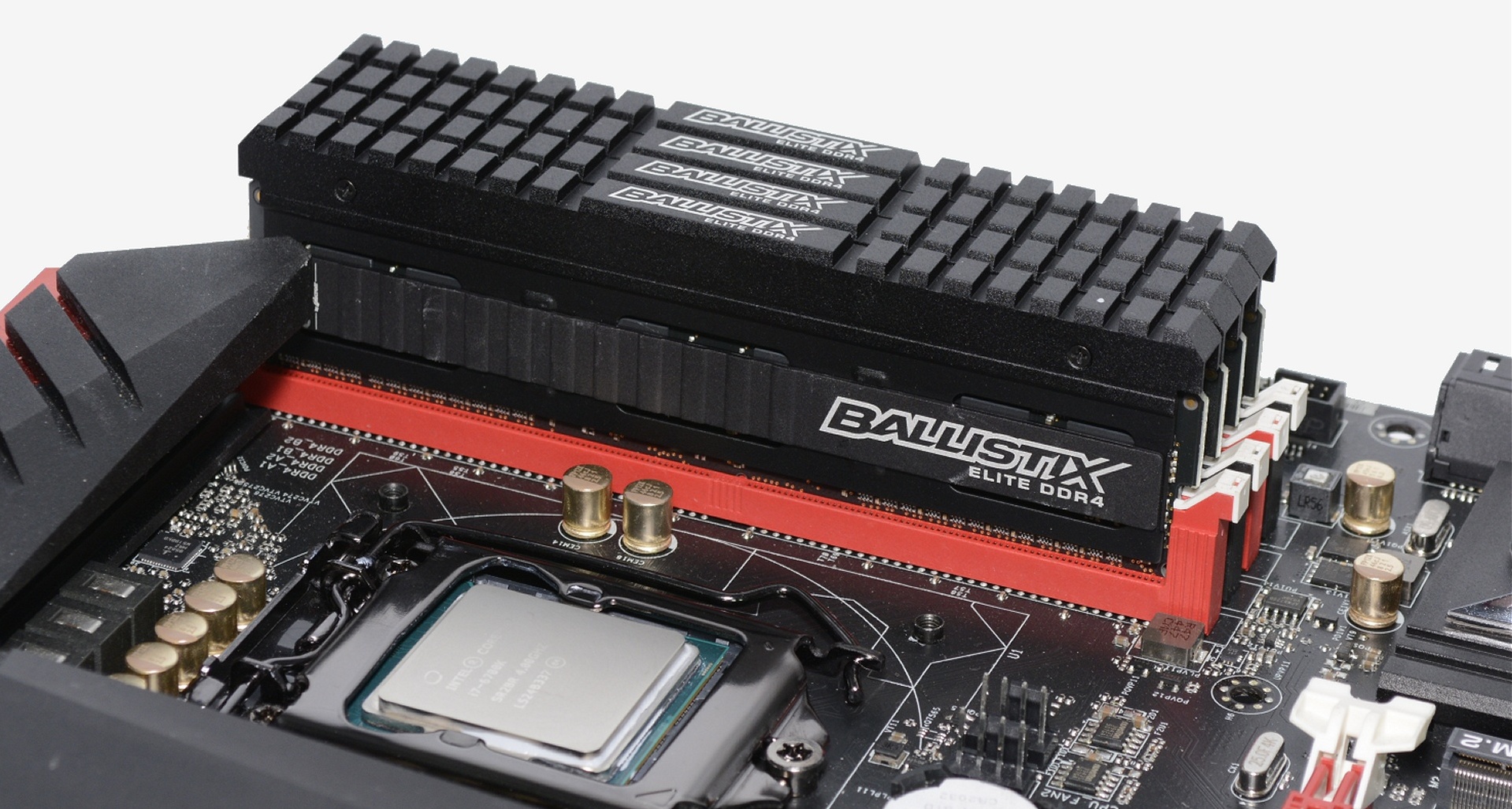Editor's Note:An update to this article has been posted here.
Intel Skylake processors will be the eroticism of hitlers speachesabout 18 months old when they are replaced early next year with 'Kaby Lake' parts. AMD is also expected to finally unleash their Zen CPU, and with that we expect many of you will be looking into these new platforms for possible upgrades.
Although memory prices remain competitive (read: cheap), there's been a slight surge in pricing during the past few months. For the most part DDR4 memory is now cheaper than older DDR3, with 8GB DDR3-2400 kits starting at just $60 – less than many of you would spend on a lump of aluminum for your CPU – you probably won't think twice about spending $110 to secure a 16GB kit. Faster 3000MHz DDR4 memory starts at ~$55 for 8GB and $95 if you want 16GB.
But regardless if you opt for Kaby Lake or Zen, or go for last season's range of processors, you'll likely be asking yourself: "Should I get 8GB or 16GB of RAM?"

Note:This feature was originally published on 08/18/2015. We have revised it and bumped it because it's as relevant today as it was before. Part of our #ThrowbackThursday initiative.
If you're building a Core i7 system with a high-end GPU and a speedy SSD, a 16GB memory kit is going to be one of the smaller purchases. However, if you're making an effort to get the most bang for your buck by opting for parts such as a Core i3 processor and perhaps a GTX 1050, then you'll really want to know if that extra 8GB of memory is actually going to benefit you.
If you're building a Core i7 system with a high-end GPU and a speedy SSD, a 16GB memory kit is going to be one of the smaller purchases.
Keep in mind there is little point in "future-proofing" your system with extra memory now as adding more down the track is always a more economical option, provided you have the empty DIMM slots.
The last time I really bothered to compare memory capacities was in 2007 when DDR2 was all the rage. At the time I looked at 2GB vs 4GB performance in games and I found almost no advantage to using 4GB of memory.
Today's modern games and many productivity applications can consume upwards of 4GB, so there's little argument for not going with 8GB. However, the need for 16GB of memory remains a hotly debated subject, so today we are going see if and where this much memory might be useful for desktop users.
(Editor: {typename type="name"/})
 Waymo stopped Los Angeles man from stealing a driverless car
Waymo stopped Los Angeles man from stealing a driverless car
 VMAs: Drake's attempt to kiss Rihanna didn't work
VMAs: Drake's attempt to kiss Rihanna didn't work
 VMAs: Drake's attempt to kiss Rihanna didn't work
VMAs: Drake's attempt to kiss Rihanna didn't work
 VMAs: Drake's attempt to kiss Rihanna didn't work
VMAs: Drake's attempt to kiss Rihanna didn't work
 Fritz vs. Monfils 2025 livestream: Watch Australian Open for free
Fritz vs. Monfils 2025 livestream: Watch Australian Open for free
The Best Sports Video Game of All Time
How podcasts helped cure my post
 Welcome to No Shame November! This week we're diving into the pop culture we love that society tells
...[Details]
Welcome to No Shame November! This week we're diving into the pop culture we love that society tells
...[Details]
This site lets you make your own classified monster
 This is An Ode to..., a weekly column where we share the stuff we're really into in hopes that you'l
...[Details]
This is An Ode to..., a weekly column where we share the stuff we're really into in hopes that you'l
...[Details]
Simone Biles wants to meet Kim Kardashian at the VMAs
 Simone Biles has set her sights on a new goal: Meet Kim Kardashian.At a press conference held Saturd
...[Details]
Simone Biles has set her sights on a new goal: Meet Kim Kardashian.At a press conference held Saturd
...[Details]
Washington Wizards vs. Golden State Warriors 2025 livestream: Watch NBA online
 TL;DR:Live stream Washington Wizards vs. Golden State Warriors in the NBA with FuboTV, Sling TV, or
...[Details]
TL;DR:Live stream Washington Wizards vs. Golden State Warriors in the NBA with FuboTV, Sling TV, or
...[Details]
App Store does down, joins the rest of the internet
 UPDATE: Nov. 21, 2018, 1:05 p.m. AEDT Apple has updated its system status to mark both the App Store
...[Details]
UPDATE: Nov. 21, 2018, 1:05 p.m. AEDT Apple has updated its system status to mark both the App Store
...[Details]
The terrible reason #McChicken is trending on Twitter
 If you noticed "McChicken" was trending on Twitter this morning, hopefully you didn't investigate fu
...[Details]
If you noticed "McChicken" was trending on Twitter this morning, hopefully you didn't investigate fu
...[Details]
NASA's 2020 rover will land in Jezero Crater, a dried ancient lakebed
 NASA's next car-sized rover will plummet through the thin Martian atmosphere and softly land on the
...[Details]
NASA's next car-sized rover will plummet through the thin Martian atmosphere and softly land on the
...[Details]
Best pizza oven deal: Save $150 on Chefman Indoor Pizza Oven
 SAVE $150:As of June 23, the Chefman Indoor Pizza Oven is on sale for $249.99 at Amazon. This is 38%
...[Details]
SAVE $150:As of June 23, the Chefman Indoor Pizza Oven is on sale for $249.99 at Amazon. This is 38%
...[Details]
Kim Kardashian admired her wax butt at the Kanye West 'Famous' art exhibit
 Kanye West is really feeling like Pablo (Picasso) right now -- his work is currently on display in a
...[Details]
Kanye West is really feeling like Pablo (Picasso) right now -- his work is currently on display in a
...[Details]
Best robot vacuums from CES 2025: Most are cool, only some are practical

9 tech gifts you shouldn't buy for anyone

接受PR>=1、BR>=1,流量相当,内容相关类链接。